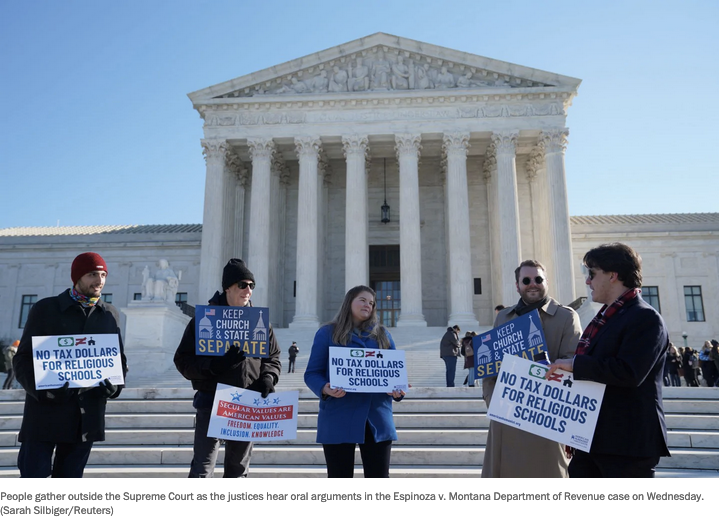The Espinoza plaintiffs are backed by a bevy of powerful conservative organizations. Major school-choice and private education advocates including the Cato Institute, the Council for American Private Education and the Billy Graham Evangelistic Association have filed amici curiae briefs supporting the plaintiffs arguing that prohibiting religious schools from getting public aid is a violation of the First Amendment.
On its face, Espinoza seems to be a small case concerning a now-defunct school voucher program, but in reality, it is the culmination of a 50-year campaign to provide parochial and other private schools with government money. If successful, these school choice advocates will remake American education by opening the door to publicly funded private religious education across the United States. In addition to breaking down the separation of church and state and taking much-needed funds away from the public education system, a victory by the mothers would exacerbate school segregation, thanks to the long history of racial segregation within parochial schools, something the justices largely ignored during oral arguments.
The plaintiffs and their powerful backers aim to strike down a provision, the Montana Constitution’s no-aid provision, that bars allocating public money to sectarian schools. These sorts of amendments restricting aid to religious schools are often nicknamed Blaine amendments after U.S. Rep. James G. Blaine of Maine, who spearheaded an effort in 1875 to add such an amendment to the U.S. Constitution that would have prevented government funding from going toward sectarian schools. Currently, 37 states have them.




